Best probiotic: Support your gut health and reduce bloating
We’ve tested the best probiotic on the market to help you improve your gut health
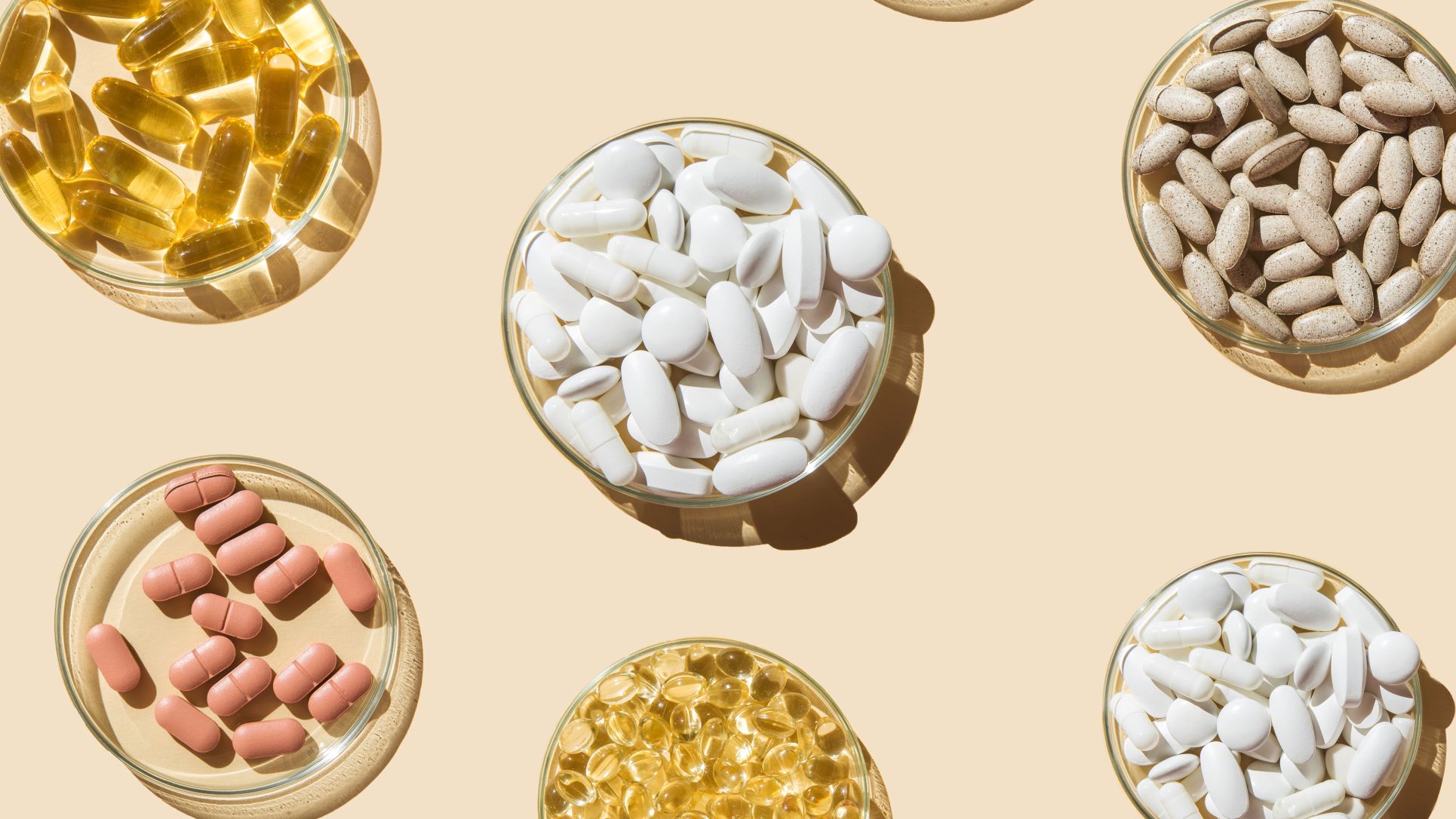
Get the world’s most fascinating discoveries delivered straight to your inbox.
You are now subscribed
Your newsletter sign-up was successful
Want to add more newsletters?
Join the club
Get full access to premium articles, exclusive features and a growing list of member rewards.
You've probably seen lots of people singing the praises of the best probiotic, but how can you tell which supplements are worth your buck? With so many different options on the market, finding a product that is perfectly aligned with your needs and preferences may be a time-consuming venture. To save you the hassle, the Live Science team has tested numerous probiotic supplements to give you all the information you may need.
Probiotics contain live strains of ‘good’ bacteria, which may not only be essential to our gut health, but also to the proper functioning of our whole body, including our immune system, skin and vaginal health for women. Probiotics may have the power to reduce inflammation within the body, aid in weight loss and even improve our mental health.
With all these fantastic benefits, it can be difficult to separate the good probiotics from the brands that don't quite cut it, leaving customers confused and overwhelmed. Probiotics come in various different forms and often target different issues (you can buy probiotics specifically for bloating, probiotics for men or probiotics for women) so it can be difficult to know what to buy. Many also contain a variety of microbial strains and a range of additional ingredients, making it hard to narrow down the ones that will suit you needs.
To help you choose the best probiotic for you, the Live Science team has created a complete guide to these gut health supplements. Here, we’ve covered the important aspects you'll want to consider, including type and number of bacterial strains, form, and manufacturing processes. And to give you the most thorough reviews, we have personally tried and tested every product in this guide. Read on to see our round-up.
The best probiotic we've tested
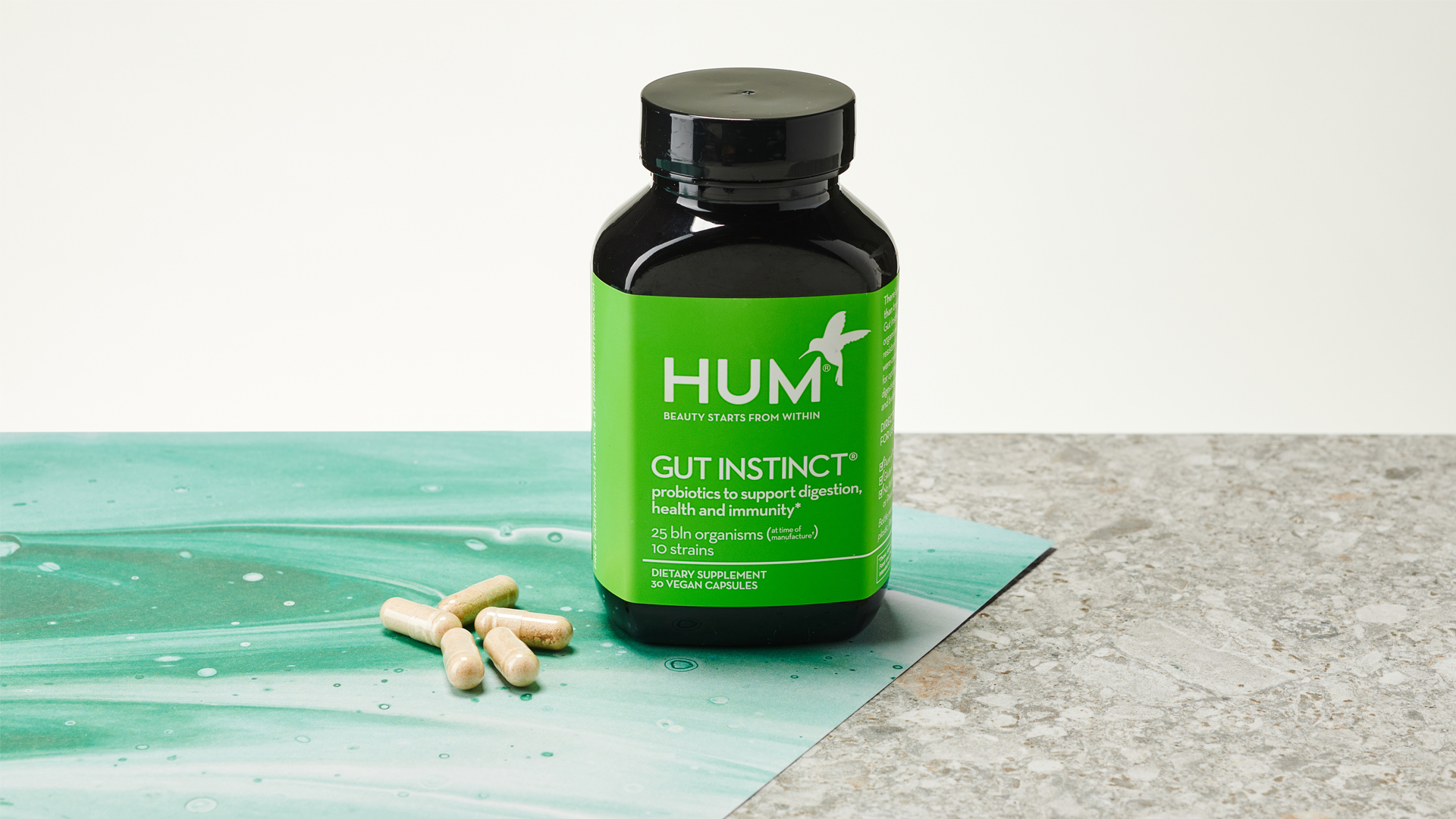
1. HUM Nutrition Gut Instinct
Our expert review:
Specifications
Reasons to buy
Reasons to avoid
If you’re after a premium dietary supplement, HUM Nutrition should definitely land on your radar. This brand is well known for its high quality products validated through extensive clinical research. What’s more, this brand is heavily involved in reducing plastic pollution, making their products more environmentally-friendly. HUM Nutrition supplements do not contain any GMOs or artificial sweeteners or colorants, and are free from wheat, gluten, soy, milk, egg, fish, shellfish, tree nuts and peanuts. As a result, its probiotics may be perfect for those struggling with food allergies and sensitivities.
HUM Nutrition Gut Instinct contains a great selection of 10 different beneficial bacterial strains, and provides an impressive 25 billion CFU per single serving. Its formula is also acid-resistant. Capsules are relatively small and easy to swallow, and they leave no aftertaste. After only a week of supplementation, our tester experienced a significant improvement in their IBS symptoms; they reported feeling less bloated, and their stomach cramps were not as intense. Many online user reviews reported similar positive experiences. Given the versatility and strength of this probiotic supplement, it can be considered a great gut health all-rounder.
On the other hand, this premium quality comes with a higher price tag, and there’s only one pack size available. The capsules need to be taken on an empty stomach, which may not suit certain individuals.
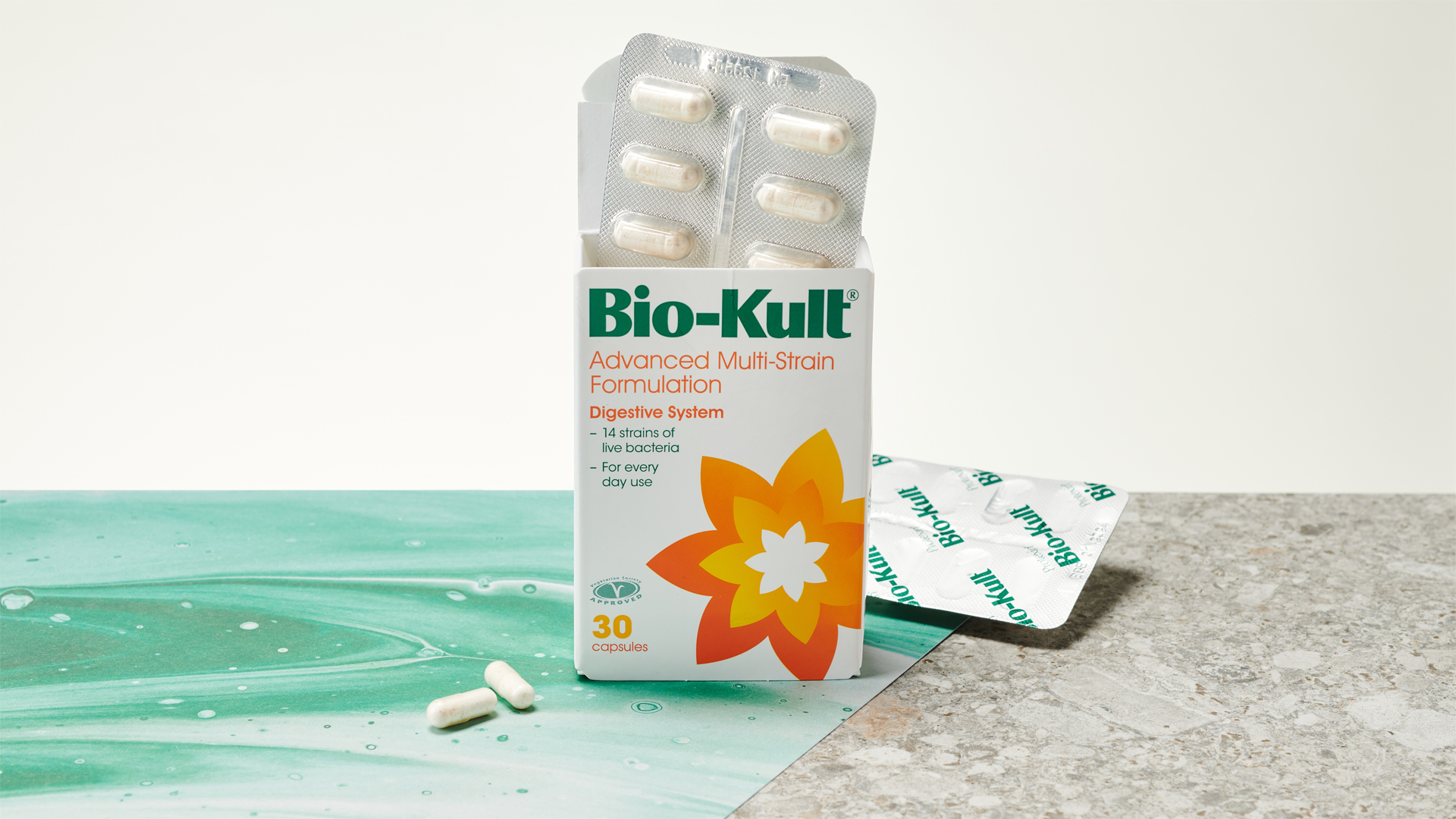
2. Bio-Kult
Our expert review:
Specifications
Reasons to buy
Reasons to avoid
When it comes to affordable probiotic supplements, it’s hard to find a bigger household name than Bio-Kult. Despite being much cheaper than most of its competitors, Bio-Kult produces great quality products backed by clinical research. The brand boasts great green credentials too. Its manufacturing site runs entirely on renewable energy and produces no landfill waste.
Bio-Kult probiotics do not need to be refrigerated and can be consumed by those allergic to eggs and gluten. Each serving contains a whooping 14 strains of ‘good’ bacteria, which are cryoprotected during the freeze drying process. This manufacturing technique protects the microbes from stomach acids and allows them to reach the gut largely intact. Handy for those following a vegan diet, these probiotics are enriched with B12 vitamin and come in three different pack sizes.
While supplements will work differently for everyone, our tester found Bio-Kult probiotics effective at managing their IBS symptoms. They took two capsules a day with breakfast for a month and experienced a notable decrease in bloating and stomach cramps, as well as needing fewer trips to the toilet. Many online user reviews report similar improvements, particularly in relation to gut motility and reactivity.
So what are the cons? Bio-Kult probiotics have a lower CFU per serving than most of their competitors — 2 billion. What’s more, their capsules are quite large, which may make them hard to swallow for certain individuals. They’re also not suitable for people allergic to dairy and soy.
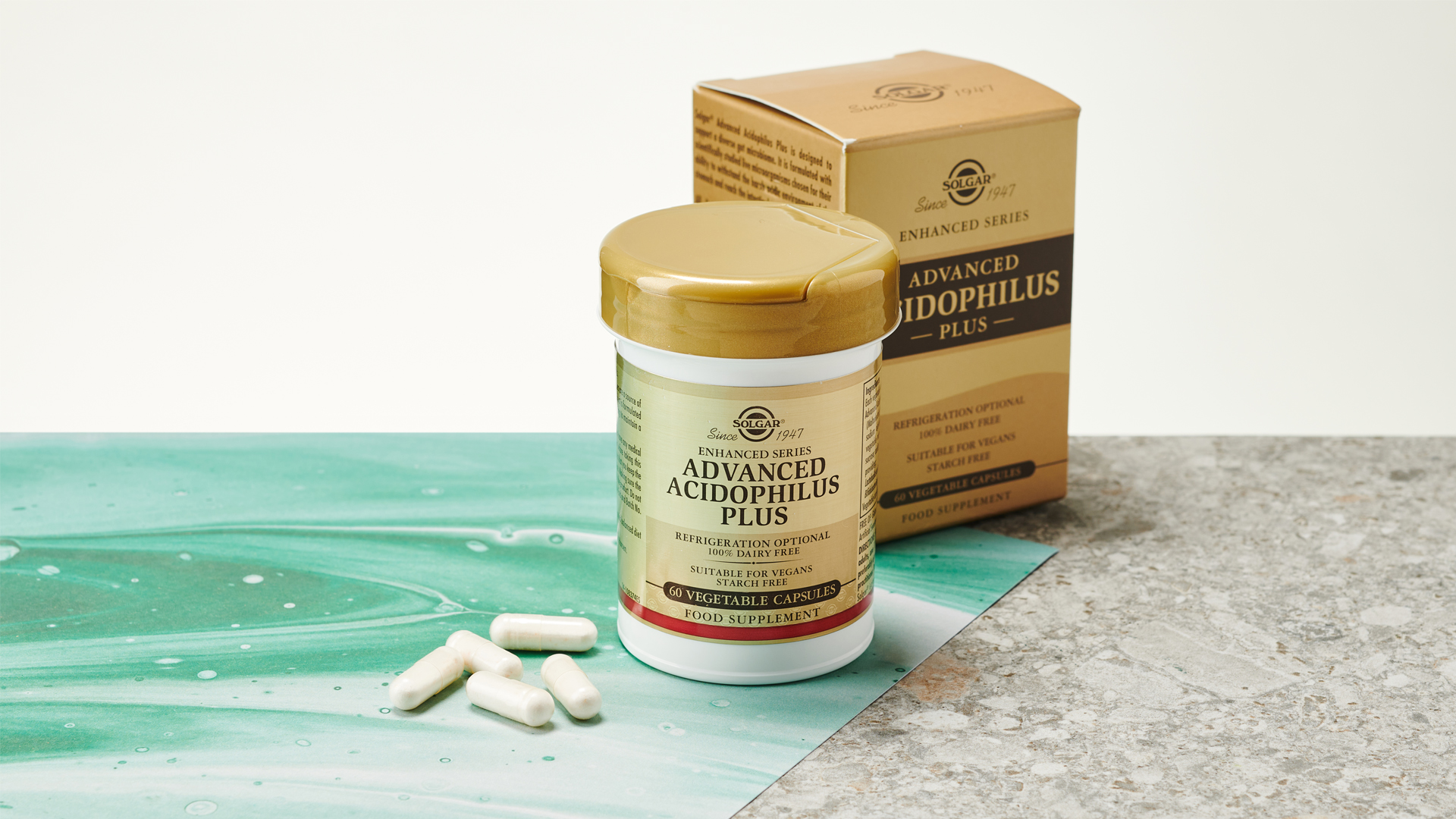
3. Solgar Advanced Acidophilus+
Our expert review:
Specifications
Reasons to buy
Reasons to avoid
If you have never tried probiotics before, or struggle with certain medical conditions, it’s understandable that you may want to take it easy to begin with. Many probiotic supplements on the market boast high strength and diversity in their beneficial bacteria — but that does not necessarily mean that they’re a good choice for beginners, or those with highly sensitive gastrointestinal tracts. So if you’re looking for the best starter probiotics that don’t cost the earth, Solgar Advanced Acidophilus may prove a great option.
To start with, it’s produced by Solgar — one of the most well-known and universally respected supplement brands. All of its products are backed by years of clinical research and third party certificates. What’s more, this company achieved full Carbon Neutral status in 2010 and continuously invests in a host of sustainable projects. Therefore you can be assured of their green credentials.
Secondly, it contains only two strains of beneficial bacteria, carefully selected based on their safety record and the strength of clinical evidence behind them. The CFU strength is also relatively low. What’s more, we found the capsules small and easy to swallow. Solgar Advanced Acidophilus + are also free from dairy, wheat, yeast, sugars, starch, artificial sweeteners and colors. As such, this product could be a perfect introduction to the world of beneficial bacteria — without a hefty price tag.
However, if you’re a probiotic veteran or you’re recovering from antibiotics, this supplement may not be strong enough to produce desired results. Solgar Advanced Acidophilus + do not contain any additional ingredients either.
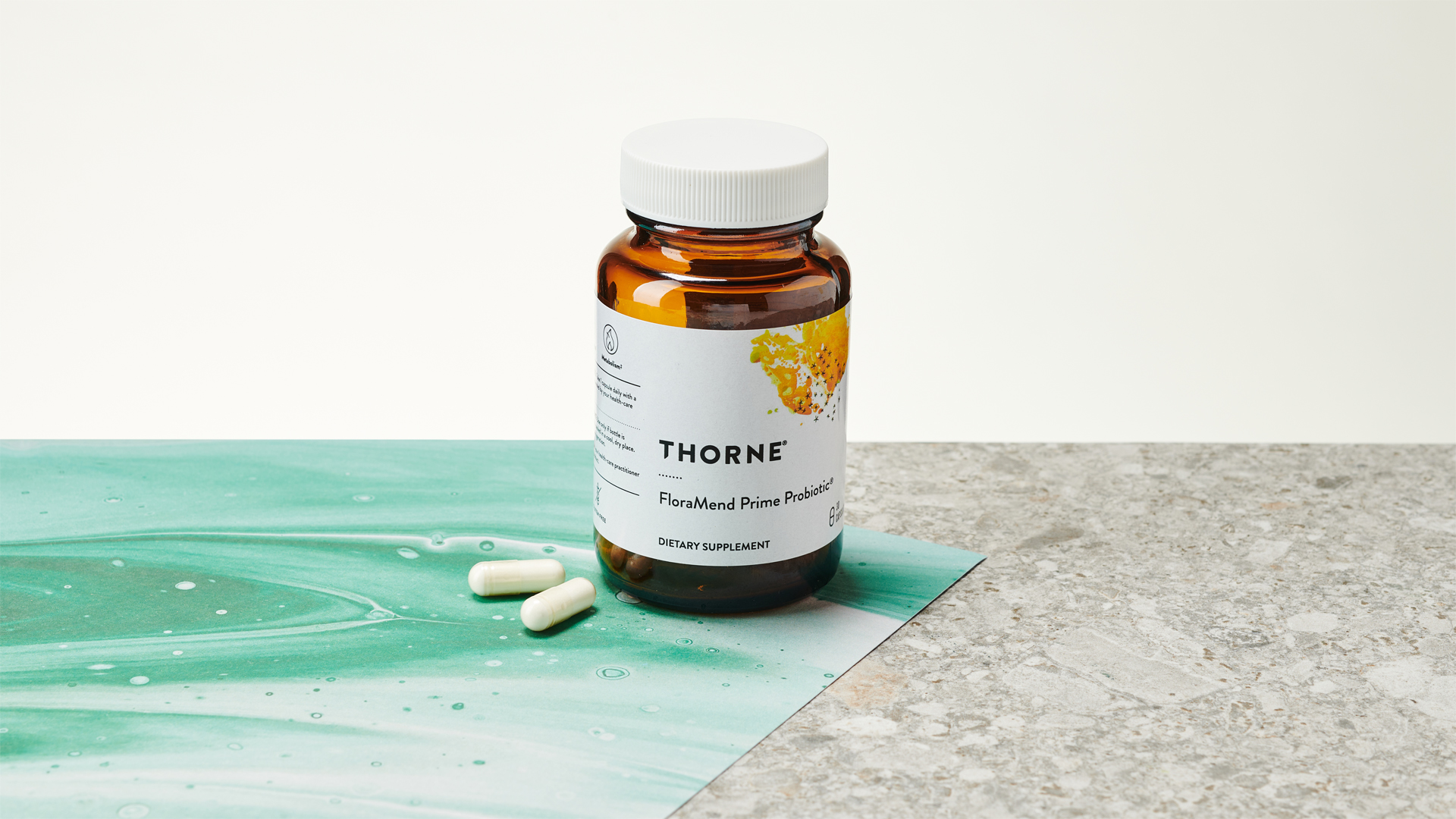
4. Thorne FloraMend Prime Probiotic
Our expert review:
Specifications
Reasons to buy
Reasons to avoid
Thorne dietary supplements may not be the most affordable, but you can be assured of its superb quality, validated by extensive clinical research. Independently certified by Current Good Manufacturing Practices, NSF and TGA, Thorne prides itself on delivering clean, highly absorbable and effective products. All of its supplements undergo four rounds of testing, when most competitors tend to test only once and twice.
What’s more, this brand is a real champion for green causes. Thorne is actively working on reducing their carbon footprint and reliance on plastic, as well as protecting endangered botanical resources.
Its flagship probiotic supplement — Thorne FloraMend Prime — has been specifically designed to support weight loss. According to the International Journal of Obesity, many Lactobacillus strains may indeed help you shed stubborn pounds. Lactobacillus gasseri, the main bacterial strain in Thorne FloraMend Prime, has been particularly shown to lower body fat, BMI and waistline, as evidenced in trials published in The British Journal of Nutrition and European Journal of Clinical Nutrition. We were not able to test this product long enough to be able to comment on whether it lives up to its weight loss claims. Still, it only took a week of Thorne FloraMend Prime supplementation for our tester to notice a marked difference in their digestive symptoms.
What’s more, the capsules are easy to swallow and leave no aftertaste. They are also free from gluten, soy, dairy, and contain no artificial sweeteners or colors. As mentioned before, the only problem may be the hefty price tag.
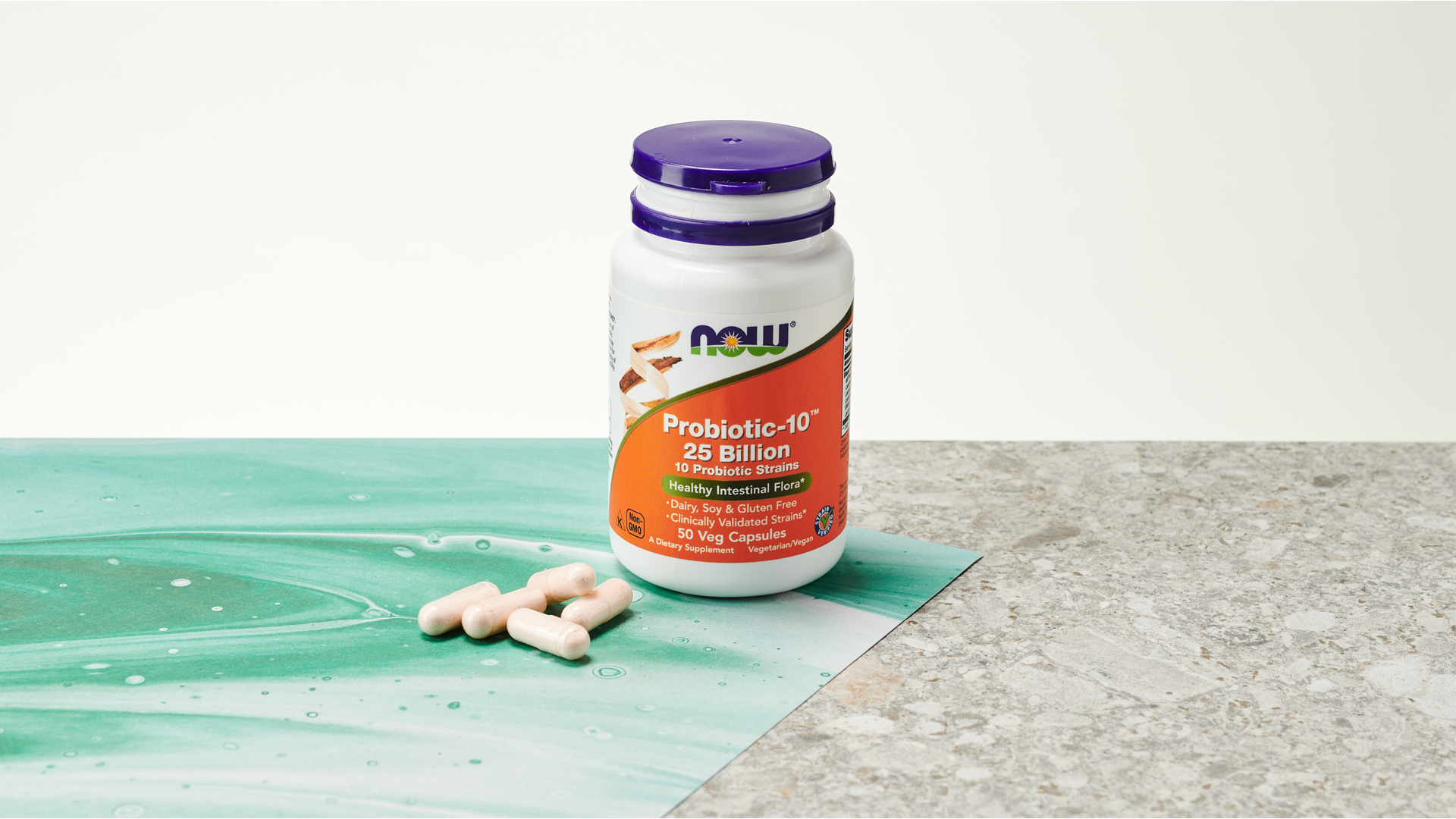
5. NOW Probiotic-10™ 25 Billion Veg Capsules
Our expert review:
Specifications
Reasons to buy
Reasons to avoid
If you’re after a simple all-rounder, that’s affordable, effective, user-friendly and free from any unwanted ingredients, look no further than NOW Probiotic-10™ 25 Billion Veg Capsules.
First and foremost, NOW is a well-established and universally acclaimed dietary supplement company that takes great care in ensuring good value without compromising on quality. All of its products are sustainably produced, third party certified, and backed by clinical research. What’s more, they can suit even the most stretched-out budgets.
Secondly, NOW Probiotic-10™ contains a great selection of beneficial bacterial strains, and provides a relatively high CFU. The capsules are small and easy to swallow, and contain no gluten, dairy, soy, eggs and nuts. This supplement is also vegan-friendly, and comes in three different pack sizes.
But most importantly, we believe NOW Probiotic-10™ lives up to its marketing claims. After two weeks taking this supplement, our tester found their IBS symptoms had visibly reduced, and they experienced a marked improvement to their digestion. They also reported feeling ‘lighter’ and less lethargic.
The downsides? The capsules need to be taken between meals, or on an empty stomach. They also don’t contain any additional ingredients.
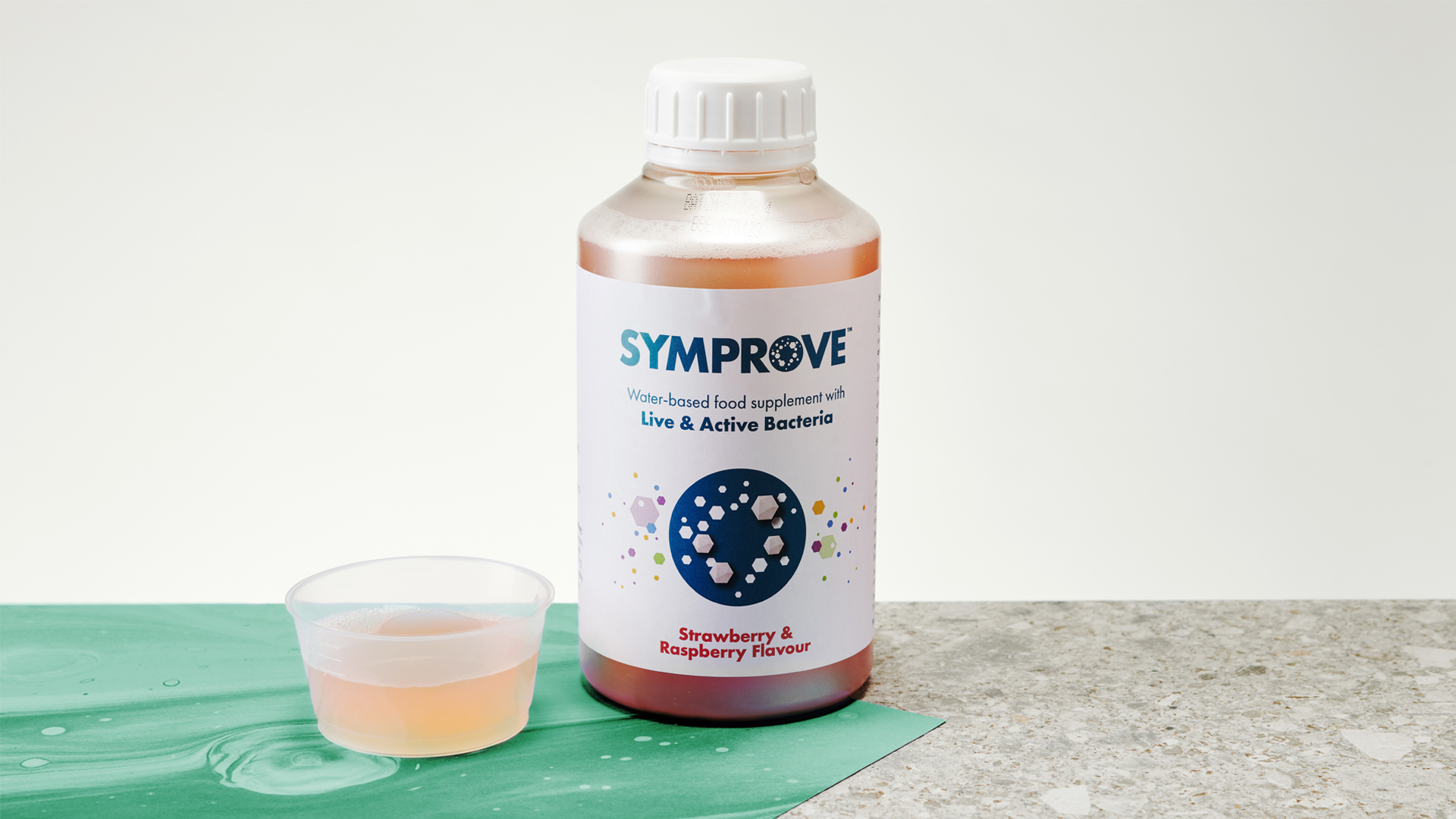
6. Symprove
Our expert review:
Specifications
Reasons to buy
Reasons to avoid
Symprove is a water-based probiotic supplement that needs to be kept refrigerated. This approach allows the bacteria to reach the gut largely intact, as liquid formulations do not trigger digestive processes the way solid supplements may do. Symprove contains four strains of bacteria independently verified by the NCIMB, so you can be assured that this supplement is of good quality.
Whereas Lactobacillus strains are widely regarded as beneficial for our health, the addition of Enterococcus faecium may understandably raise some eyebrows. Enterococci are known for causing severe bloodstream and heart infections. But there’s no need to panic. As reported in the International Journal of Food Biology, some E. faecium strains are safe and can be used as probiotics to treat diarrhea, irritable bowel syndrome and high cholesterol levels.
What’s more, Symprove is also enriched with vitamin C and prebiotic germinated barley. According to the Journal of Gastroenterology, germinated barley contains compounds that may help with inflammatory diseases like ulcerative colitis. Symprove supplements are also vegan-friendly and free from gluten and dairy.
The biggest downside is the price. Having to fork out nearly $60 every month may not be feasible for those on tighter budgets (although you can save 1/3 by buying a 12-week supply instead). The specific taste of Symprove's products may not be up to everyone’s liking, as it can be quite sour. Having said this, we've tried both the Strawberry & Raspberry and Mango and Passion Fruit flavors for a month each, and really enjoyed them. Our tester also experienced a noticeable reduction in bloating when taking Symprove daily, and enjoyed the routine of taking a liquid supplement before breakfast.
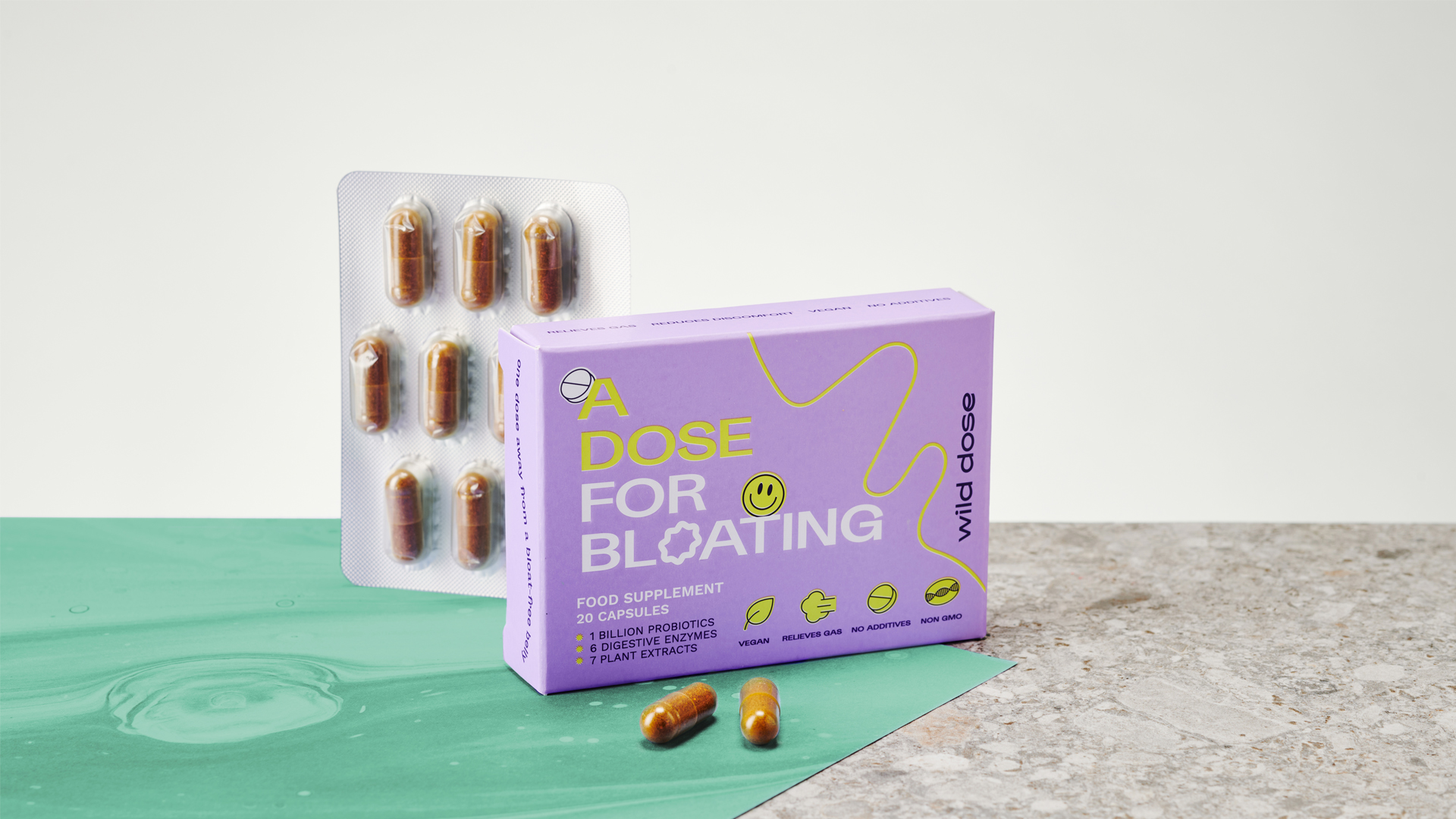
7. Wild Dose
Our expert review:
Specifications
Reasons to buy
Reasons to avoid
Wild Dose offers a solution to bloating, containing lactobacillus acidophilus and three strains of bifido bifidum (1 billion CFU), six digestive enzymes and seven plant extracts. The recommend dosage is to take one or two capsules as and when you need them, with an upper limit of six a day. Take before a meal to pre-emptively stop bloating and gas, or to relieve these symptoms later in the day if you need.
Wild Dose prides itself on being built for those with sensitive digestive systems and are suitable for those with IBS who may react to ingredients in other probiotic supplements. These capsules are gluten free and suitable for vegetarians and vegans, meaning whatever your dietary requirements, they should be safe for you to take.
The probiotics come in a 20 capsule blister pack, which is great if you just want to try them out, or a 60 capsule bottle, which provides a months' supply if you are taking two a day. The capsules themselves are coated, making them easy to swallow. They have a slightly gingery, turmeric smell to them, which actually isn't unpleasant, and you can't really taste this either.
Wild Dose is also a good choice for those who are environmentally conscious, as the blister packs is recyclable in certain stores. The company is also working to ensure new blister packs are made from biodegradable material. While the company is based in the United Kingdom, it ships globally to the U.S. The blister pack retails at $12, and the bottle at $31, making this one of our best mid-range options.
Which probiotic should I take?
Why you can trust Live Science
Probiotics are sold as dietary supplements and therefore they do not have to go through the same strict testing as medications do. Brands can also market their probiotic supplements without prior FDA approval. Therefore, always question a brand that places any dubious or too-good-to-be-true health claims on their products.
According to Kim Plaza, MSc, a registered nutritional therapist and technical advisor at Bio-Kult, there are currently no authorized health claims relating to probiotics/live bacteria supplements. “This is not necessarily related to the efficacy of such supplements but is more a reflection of the complexity of the field of microbiology,” she says. “For example, probiotic effects are often strain specific, and different species/strains may have different benefits in different conditions and/or patient populations.”
That’s why it’s important to verify whether your product is of good quality. The best probiotics will be approved by at least one of the following third parties:

Kim Plaza is a registered nutritional therapist with a Bachelor of Science (with honors) degree in Health and Nutrition, and a Masters degree in Nutritional Therapy. She is registered with BANT and the CHNC in the U.K.
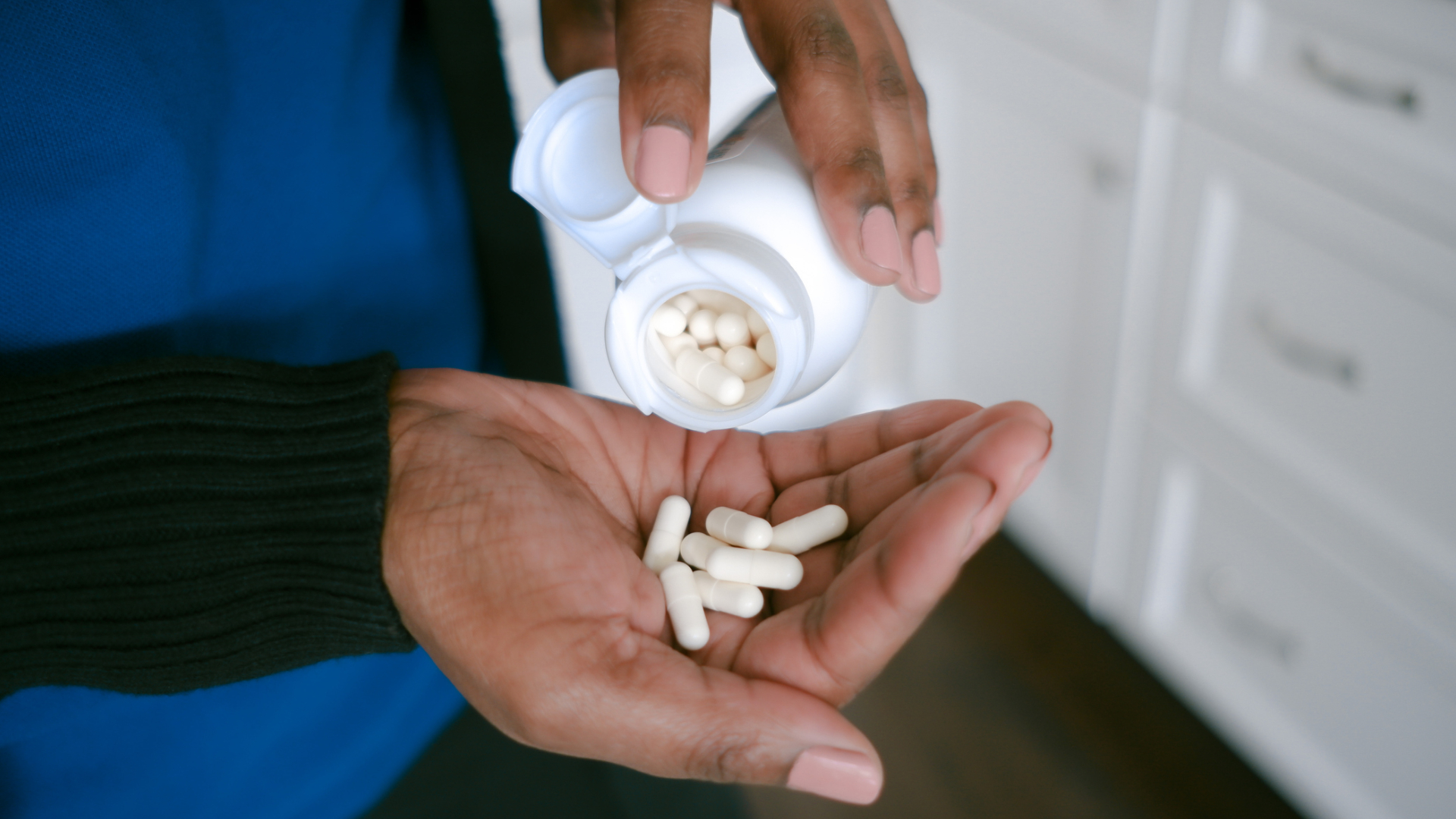
What does CFU mean?
The type and amount of all microbes should be listed. There are three names given to a bacterial ingredient; the genera or genus is the first name given (for example Lactobacillus, Bifidobacterium or Streptococcus), sometimes these are shortened to just the first letter of the genus name. Then it should state the species (such as acidophilus or bifidum) and finally the strain, such as PXN 35 or PXN 21.
Their count should be listed as CFU (Colony Forming Unit — the number of live microbes in a single dose). Ensure that the CFU count is viable throughout the shelf-life of the product rather than simply at ‘time of manufacture’, as this provides a better estimation of how much bacteria is still viable when consuming the product.
There are no standard specifications when it comes to the recommended CFUs. Probiotic supplements tend to contain anywhere from one to 10 billion CFU per serving, with some up to 100 billion.
But according to the National Institute of Health, higher CFU counts are not necessarily better.
“At this point in time, there is limited evidence to confirm a ‘dose-response relationship’, therefore firm conclusions cannot yet be made as to which CFU of supplement is ideal,” agrees Plaza. “The efficacy of a product therefore needs to be evidenced by adequately powered clinical trials and this may not always mean that the supplement should be more than a certain CFU number,” she advises.

What probiotic is best?
Probiotic supplements may contain bacteria from one genus and/or species only, while others combine several different ones.
“Each bacterial strain has its own unique properties and characteristics,” says Plaza. “It is because of this variety in characteristics that a combination of strains may be beneficial, potentially having a synergistic effect and supporting the environment of other strains. For general gut support, look for a multi-strain that contains not only different strains but also different species and genera.”
The British Dietetic Association found that multi-strain formulations were effective for relieving IBS symptoms in twice as many clinical trials than single strain products. For more targeted products, you may consider single strains or a lower number of strains – depending upon their specific evidence of use.
Lactobacilli
The best probiotics will contain one or more bacteria strains from the Lactobacillus species. Multiple studies have shown that they have a wide-ranging effect on our bodies, particularly our immune and cardiometabolic health. To start with, they may prevent vaginal infections, as stated in the Microbial Cell Factories journal. According to a review recently published in the Frontiers in Immunology, these microbes may alleviate the symptoms of respiratory diseases like infections, asthma and cystic fibrosis.
Bifidobacteria
The best probiotics will also contain one or more bacteria strains from Bifidobacterium species. According to a review published in the Journal of Microbiology and Biotechnology, these microbes can stop the pathogenic bacteria, including multidrug-resistant bacteria, from growing and attaching themselves to our intestinal walls.
Streptococcus thermophilus
Some probiotic supplements contain Streptococcus thermophilus, a strain widely used in the production of dairy products. It’s a very resilient microbe that can reach the gut without being destroyed by bile or stomach acid. According to the Journal of Functional Foods, Streptococcus thermophilus promotes the growth of other ‘good’ bacteria. Moreover, they may help reduce the symptoms of lactose intolerance.
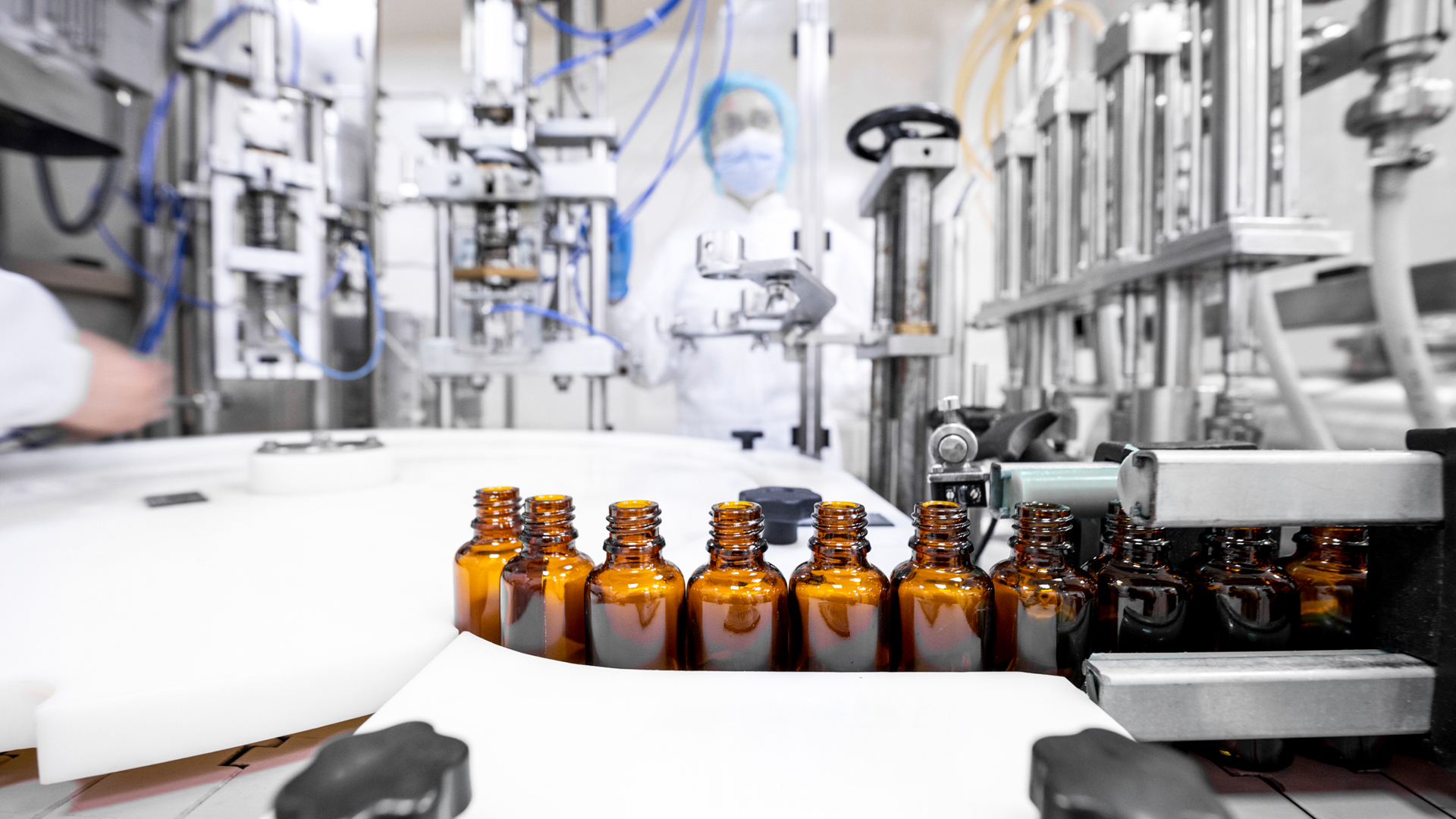
Probiotics vs prebiotics
How well the microbes survive is key to their effectiveness, so the best probiotics will ensure the microbes reach the gut largely intact.
“Delivery mechanisms, such as enteric coated capsules or cryo-protectants (where a protective coating is applied to the bacteria themselves) may be therefore required,” says Plaza. “Don’t be afraid to contact probiotic manufacturers to request evidence to show their products have the ability to survive stomach acid.”
Many targeted probiotics may also come with additional ingredients, particularly prebiotics, vitamins, minerals and plant extracts. However, they may not be suitable for everyone.
“Prebiotics are the food sources that the bugs ferment in order to thrive and provide a health benefit,” explains Plaza. “When choosing a product, including a prebiotic within it can be helpful, but is not necessarily a requirement. People with a sensitive digestive system may not tolerate prebiotics very well. Combination products containing both probiotics and prebiotics (known as synbiotics), may cause digestive discomfort until levels of the beneficial bugs are increased.
“So, if you have been experiencing digestive problems, it could be worth going for a product without prebiotics initially, then gradually introducing prebiotics if needed. Remember that this could be done with food as well as supplements.”
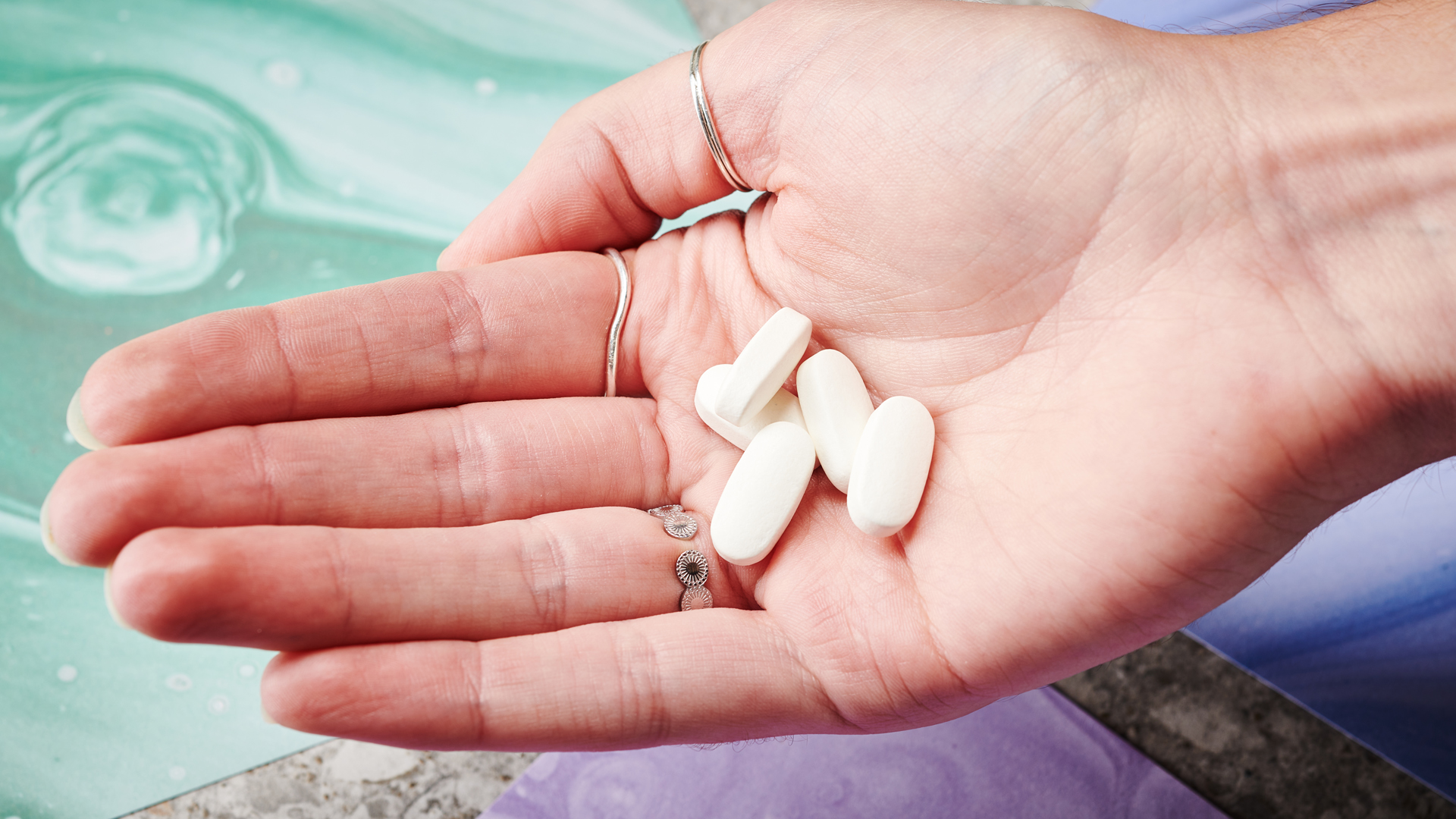
How do we test probiotics at Live Science?
Ingredients
We always note the type of microbial strains in a probiotic, because it is essential to the supplement’s effectiveness. Meanwhile, supporting ingredients will determine how many of these good bacteria will be able to reach your digestive system intact.
Recommended dosage
To a certain extent, the effectiveness of a probiotic supplement will depend on its CFU value (Colony Forming Units — the number of alive and active microbes in one serving). Different CFUs may suit different people, so we make sure to include this in every review.
Suitability
Probiotic supplements are deemed generally safe for most people. However, certain products may not be suitable for pregnant women, children, the elderly or individuals with specific health conditions. We will always note if a probiotic is or isn’t suitable for a particular group in our reviews.
Easiness to swallow & taste
Probiotics can be delivered through solid and liquid supplements, as well as functional foods. How tasty and easy to swallow they are may be an important factor for a number of people, so we make sure to consider this in our testing.
Extra features
Probiotic supplements may be designed to target specific health issues, so we take note of this in our reviews. While many products contain only specific microbial strains, others may come with additional ingredients like prebiotic fibers, vitamins, minerals and plant extracts.
This article is for informational purposes only and is not meant to offer medical advice.
Get the world’s most fascinating discoveries delivered straight to your inbox.

Anna Gora is a health writer at Live Science, having previously worked across Coach, Fit&Well, T3, TechRadar and Tom's Guide. She is a certified personal trainer, nutritionist and health coach with nearly 10 years of professional experience. Anna holds a Bachelor's degree in Nutrition from the Warsaw University of Life Sciences, a Master’s degree in Nutrition, Physical Activity & Public Health from the University of Bristol, as well as various health coaching certificates. She is passionate about empowering people to live a healthy lifestyle and promoting the benefits of a plant-based diet.
- Lou MudgeHealth Writer
 Live Science Plus
Live Science Plus










